Small Business Guide to Social Media Marketing in 2021
Table of Contents
- Definition: What is Social Media Marketing?
- What is Social Media Marketing?
- What are the Benefits of Marketing on Social Media?
- What are the Most Popular Social Media Platforms?
- What Kind of Content Should I be Posting?
- What are Social Media Marketing Best Practices?
- Social Media Management Tools
- Paid Advertising
- Measuring Success on Social Media
- Key Takeaways on Small Business Social Media Marketing
- Small Business Resources for Business & Personal Growth
Definition: What is Social Media Marketing?
Social media marketing, or SMM, is the use of social media platforms and websites to promote a business’s products or services. It empowers companies to engage with existing clients and earn new ones as they promote their company’s personality, culture, mission, vision, and successes. While most social media platforms earn the majority of their revenues from paid ads, they are not required to build an effective social media marketing strategy.
Online marketing is not just about posting product updates and promotional content anymore. It’s about engaging with customers in the way they want, on the social media platforms they use, and being flexible to sudden changes in trends. Social media marketing can be daunting at first, but ultimately, it offers small businesses the opportunity to connect with their customers and audience on a much deeper level.
What is social media marketing?
Promoting your business on social media platforms is one of the most accessible ways to reach your ideal audience. It is one of few creative ways to earn more customers for your small business and propel your growth. Today, 7 out of 10 Americans use social media to connect with each other, engage with content, and share information.
For a small business, it’s also one of the most affordable ways to reach potential customers no matter your industry. Instead of paying to directly advertise and promote your products, social media marketing is about creating great stories, sharing behind the scenes and how-to videos, and building up your presence as a thought leader in your space.
LinkedPhone serves the small business community with local & toll-free business numbers that work with your cell phone, desk phone, & laptop. Add a 2nd phone number to your cell phone with our mobile app. Talk & text with clients on the go. Add team members too. Finally break free from the desk phone. At LinkedPhone, freedom rings! 🔔📱💻☎️
It’s no longer reasonable for a business to shy away from social media. Over 81% of adults between the ages of 18-49 use social media platforms and they expect small business owners to be present.
Developing and executing on a content marketing strategy takes planning and involves some experimenting, but every small business owner can do it if they follow social media best practices.
What are the benefits of marketing on social media?
Small businesses usually don’t have the marketing resources to broadcast their brand to the world, especially if you’re starting a business during or after the pandemic. But they do have passion, character, and a drive to succeed – all characteristics that people want to follow and support on social media.
More so, people expect a legitimate business to have an online presence. It gives your company credibility and empowers you to share your company vision with the world. From a business owner’s perspective, owning your business pages on Facebook, Twitter, Instagram, LinkedIn and YouTube ensures that you’re the one in control of how your brand is represented online and in search results. Social media branding is a great way to convey your company’s personality to potential new customers.
But most importantly, social media is the place for you to connect with customers, build relationships, and expand your brand awareness. Tying your business into a community is key because people trust their friends a lot more than they trust a business. Engaging with customers who purchased and found value in your products serves as social proof to their own network and can increase your sales over time. It’s important that you have a compelling value proposition so people understand what you’re about in 5 seconds or less.
Other benefits of having an online presence include:
-
- Increased traffic to your website
- Increased brand awareness
- Control over how and where you share content
- The chance to interact and thank your customers, no matter where they are
- Visibility into trends and feedback that can help you improve your business
- Establishing your brand as a thought leader in your industry
What are the most popular social media platforms?
There are many platforms out there, but the most valuable ones for marketing your business are Facebook, Instagram, Twitter, LinkedIn, and YouTube. They offer built-in tools to help you create content, promote your business, and analyze data to help you track and measure your social marketing results.
At least 2.7 billion people use Facebook every month. It is, by far, the most popular social media platform worldwide. Every small business should have a Facebook page and leverage it’s hyper effective – and mostly free – promotional tools.
Some of the most useful functionality includes creating a business page with an online shop where you can create events, action buttons, and the ability to book appointments straight through the app. Creating interest based groups, live video, posts, stories, and direct messaging are all native to the platform.
Business Growth Toolkit
Get the latest thought leadership insights on growing your business plus occasional LinkedPhone updates. We respect your inbox!
Facebook has been growing in popularity with older adults 65 and up but their largest demographic is users 25 to 34 year olds, a segment of the population that has huge buying power.
Instagram, owned by Facebook, is hugely popular and not just with their 1 billion monthly users. Businesses love this platform as well with 98% of marketers saying that Instagram is the best platform for influencer marketing. It’s an ideal place to interact with followers, promote your products, and gather feedback on what content resonates with your audience.
Instagram offers functionality designed for sellers like stickers, buttons that you can click to purchase gift cards, order food, link to a website, or any other call-to-action you may want. A whopping 70% of shoppers visit Instagram for their next purchase.
Instagram is popular with artists, creators, small businesses, and influencers. More than two thirds of their users are 34 years of age or younger. The ability to sync content between Instagram and Facebook makes it a highly effective marketing channel.
If you sell to businesses (B2B) then LinkedIn is the place for you. There are over 774 million members across 200 countries worldwide. Many of these users have buying power at their organizations, making LinkedIn a great platform for lead generation. In fact, 82% of B2B marketers say that LinkedIn is their best source of business.
Like Facebook and Instagram, LinkedIn offers free business pages, making it a helpful platform for building professional relationships with customers, suppliers, partners, investors, and colleagues. They even have Stories like Facebook and Instagram that they describe as a way to share more playful professional moments.
Long form content does well on LinkedIn so sharing webinars, articles, and white papers can create a lot of buzz.
Twitter began as a micro-blogging platform where less is more. Users often live-tweet about trending topics, news, and current events like the Olympics or the finale of popular TV shows. It’s easy to get a dialogue started and serves as a news feed. Small businesses can also easily monitor their competitors and leap into conversations to stay relevant.
Twitter has between 350 and 400 million monthly active users. Popular accounts post a mixture of content and never focus solely on self promotional posts. One of the benefits of this platform are the tools to help you segment your audience by things like: which pets they own, their income, and marital status, for example.
The largest group of users on Twitter are between 25 to 34, followed closely by users between 35 and 49 years old.
YouTube is another giant in the social media space. For video marketing, this is the place to be as YouTube boasts 3 billion video views per day. Small businesses can create their own YouTube channel as a central library for all of their products and services videos.
Brands can create playlists of content and encourage viewers to subscribe to their channel. You can also share YouTube content on every other social media platform or website.
73% of adults in the US use YouTube. Children’s programs have grown tremendously with nine out of ten parents saying that their children ages five to eleven frequently watch YouTube.
What kind of content should I be posting?
An effective marketing strategy takes advantage of each piece of content – you don’t have to create every post from scratch. For example, if you create a high quality video you can re-purpose it into a blog article, a podcast, infographics, text quotes for Twitter, or images with statistics. You can also use bits of that original video in polls and questions for your audience to answer in the comments.
If you’re short on time and can’t focus on content creation or social media marketing, you can outsource these skills by hiring a freelancer.
Here are just a few types of content that are effective on most social media platforms:
-
- Photos of your products or services
- Behind-the-scenes content or pro-tips
- Relevant inspirational quotes
- Sharing user generated content
- Giveaways
- Live video
- Watch parties
- Employee or customer spotlights
- Product announcements
- Asking users to vote in polls
- Re-tweets, re-posts, and shares
- Links to your blog posts
What are social media marketing best practices?
If you’ve never used social media for your business before, it can be overwhelming looking through all of the features and functionality of each platform. So take a step back and prioritize what you really want to get out of your marketing – customer engagement and new business.
Identify your ideal customer profile
Remember, all of your content is for marketing purposes, even the funny posts. Your content should always be tailored towards the audience most likely to purchase your product.
If you’re not sure who that is, take a look at your existing customers and identify the industry, job role, or consumer type you see most. You may find that you have a few profiles that you want to target and you can use LinkedIn or Twitter for one profile, and Facebook or Instagram for another.
Schedule your posts ahead of time
Now that you know who your audience is, determine the ideal time to post. Professionals are less likely to see a LinkedIn post over the weekend, while consumers are more likely to see an Instagram post during that same time. Don’t get stuck in a habit though, holidays and current events can change your followers’ daily schedules so it’s important to be flexible.
Embrace the hashtag
As a small business, you can’t compete with one million posts using the same hashtag (like #summersale or #jewelry). Instead leverage niche hashtags. If you run a business in Atlanta, Georgia, use hashtags like #atlantajewelry or #georgiasummersale, for example.
Work with micro influencers
Micro influencers are locally known or niche users. They may only have a couple thousand followers but if they are well known in your specific niche or industry, they’ll have a lot of sway. Influencers will partner with brands for cash, a barter agreement, or free products to promote your business to their audience.
Prioritize customer service
Customers will reach out over social media when they’ve had an unsatisfactory experience, or even to give you a shoutout for a great experience. You need to be ready to engage with them quickly and resolve their problem or thank them for their praise. Over time, this boosts customer loyalty, encourages referrals, and creates a positive reputation for your company on social media.
If you find yourself spending hours a day posting and engaging with followers, you might not have the time to work on your actual business. If that’s the case, it’s worth taking a look at social media management tools that can help with:
-
- Automated and scheduled posting
- Cross-posting across multiple social media platforms
- Live traffic reports
- Overview of content type and popularity
- Success metric tracking
- Templates
To learn about the different kinds of tools and vendors, visit software comparison sites like G2 which serve as useful resources on what kind of functionality is available and how different vendors are rated by their customers.
Paid advertising
Just like any other type of advertising, paid social media will help you target audiences and drive sales faster. For small businesses, targeted ads that focus on leads in specific geographies or demographics can be the difference between a slow month and a sold-out day.
Paid advertising is available across all of the social media sites we’ve covered and come in various forms including:
-
- Pay per click
- Display ads
- Targeted ads
- Paid messaging
- Interactive ads
Measuring success on social media
Tracking how well your content is being received is important not only for deciding which content to focus your time and energy on, but also for measuring the performance of your business. Keep an eye on engagement metrics and business KPIs.
Engagement metrics will tell you if your content is relevant and of value to your audience. Business KPIs tell you if you are making money from your marketing campaigns on social media.
Engagement metrics include:
-
- Clicks
- Likes
- Shares
- Comments
- @mentions
- Profile visit
- Active followers
- Impressions
Business KPIs include:
-
- Cost per acquisition
- Sales and lead generation
- Customer retention
- Website traffic growth
- Audience or follower growth
Most social media platforms have these reports built-in, making it pretty easy to take a look at your Facebook or Twitter insights dashboard and tweak your strategy.
Key Takeaways on Small Business Social Media Marketing
Don’t worry, you don’t have to become a social media expert overnight. In fact, your first priority is just to connect and engage with your audience on Twitter, LinkedIn, Facebook, Instagram, and/or YouTube. Start posting what you can, strike up dialogue in comments, and build relationships with those in your industry. Before long, social media marketing will be your favorite way to meet new customers.
Small Business Resources
A special high five to Tahera Ali Khan for her outstanding research and contributions to this article. We love working with and supporting like-minded entrepreneurs. Thank you Tahera! ❤️
Get In Touch
We would love to hear from you.
Please contact us at any time with questions or feedback.


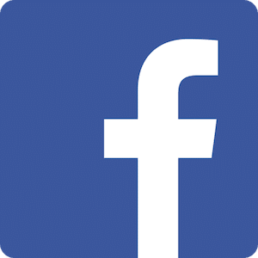
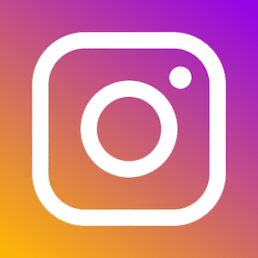
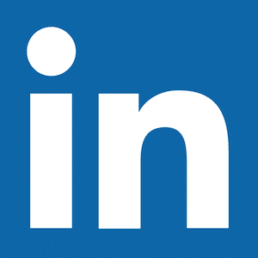
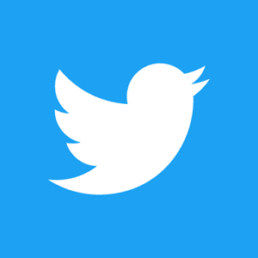
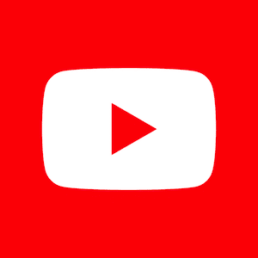





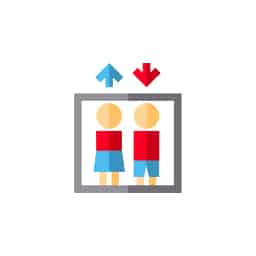

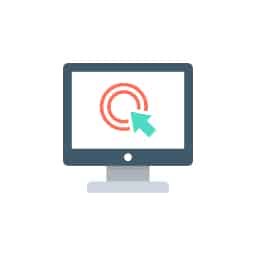

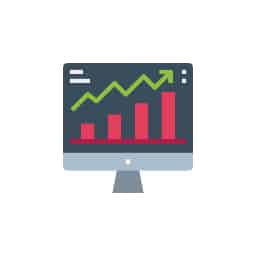








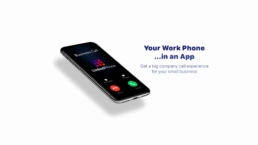
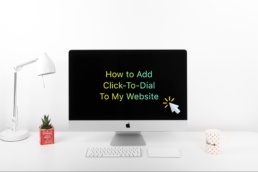
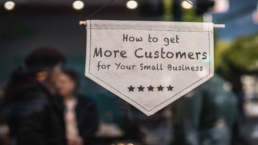

Social Media Management Tools